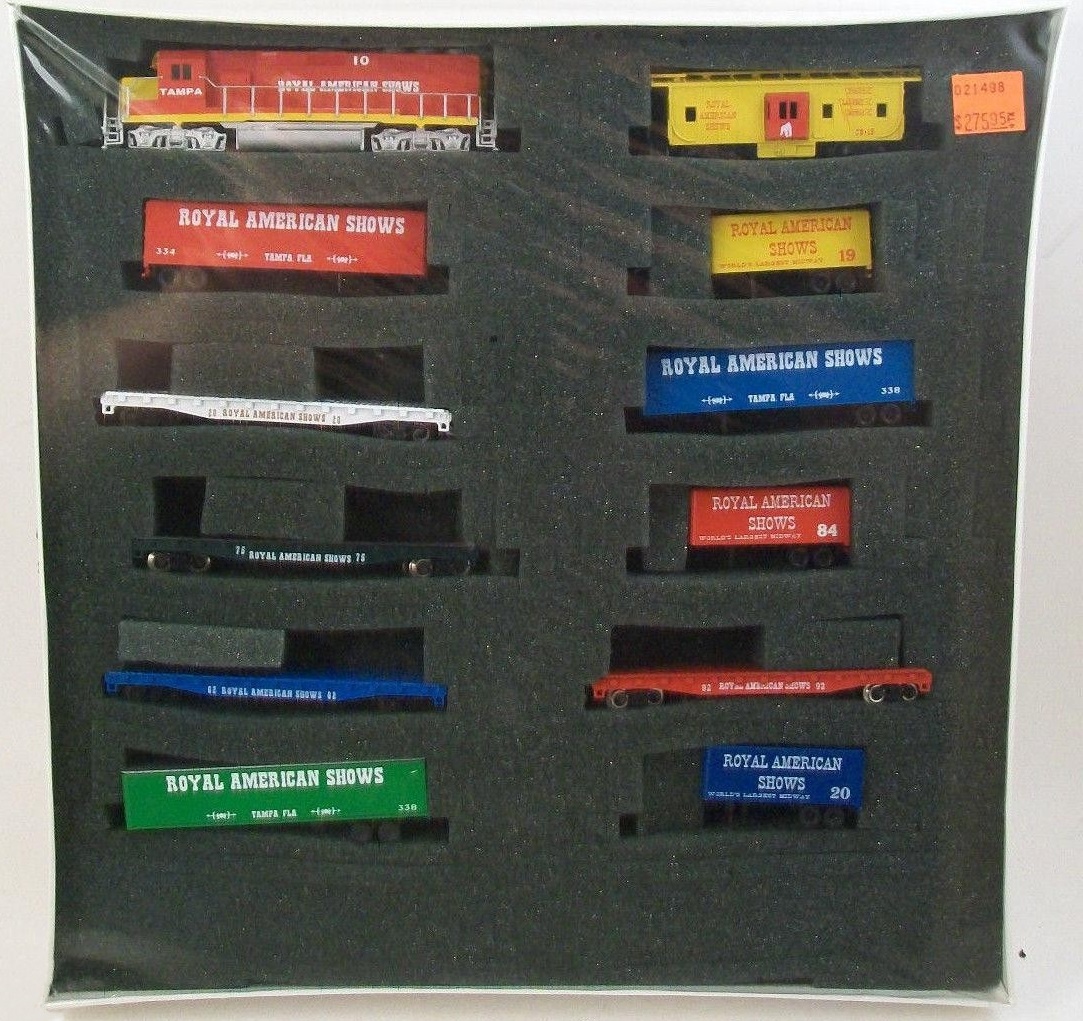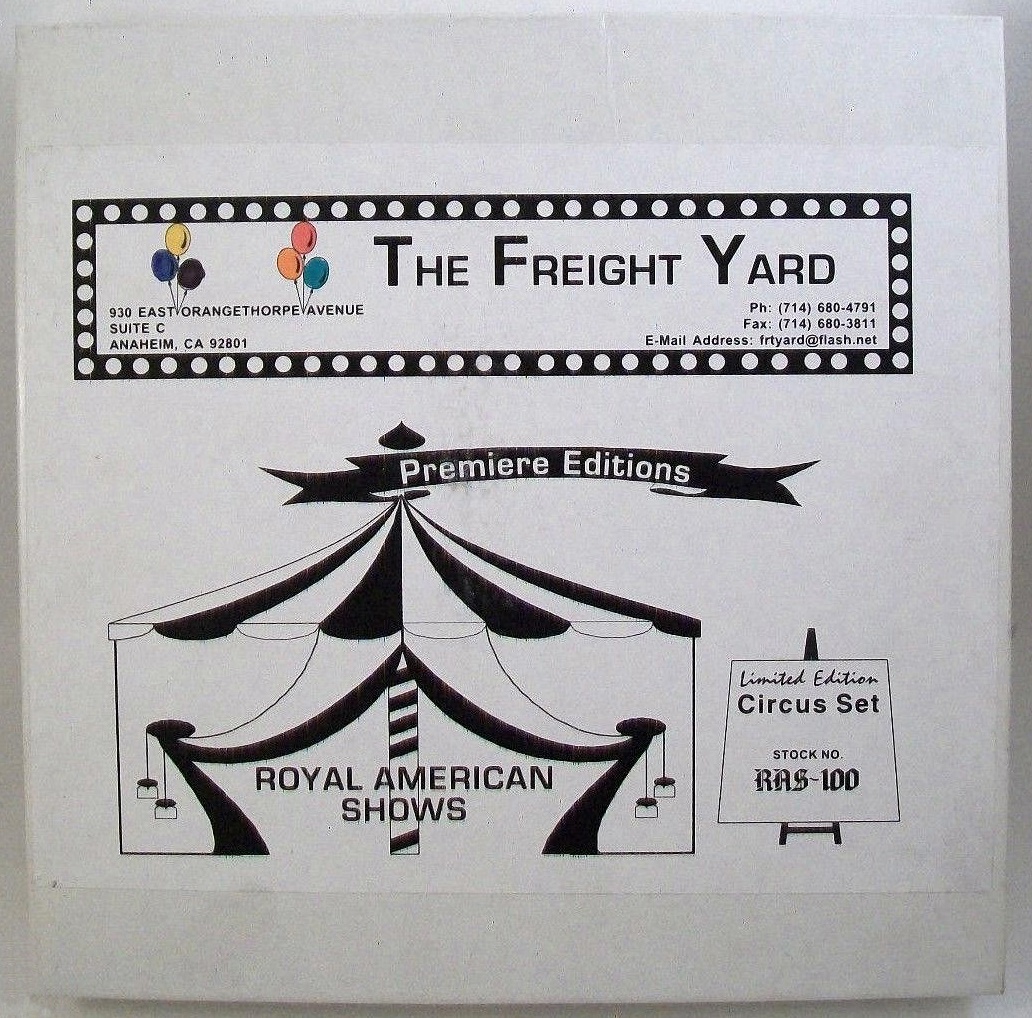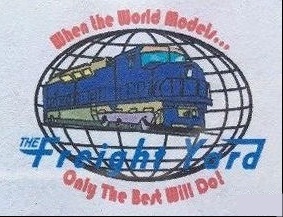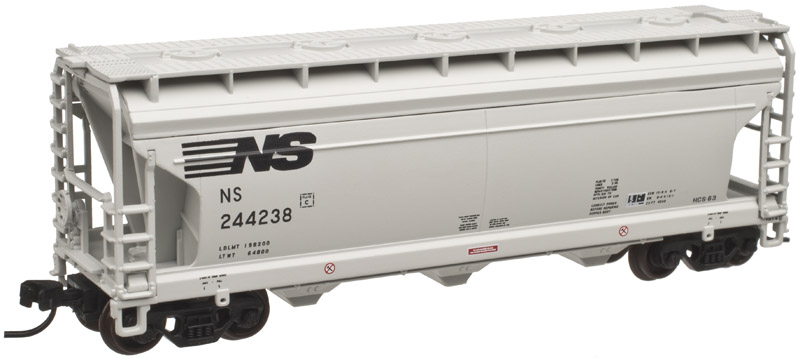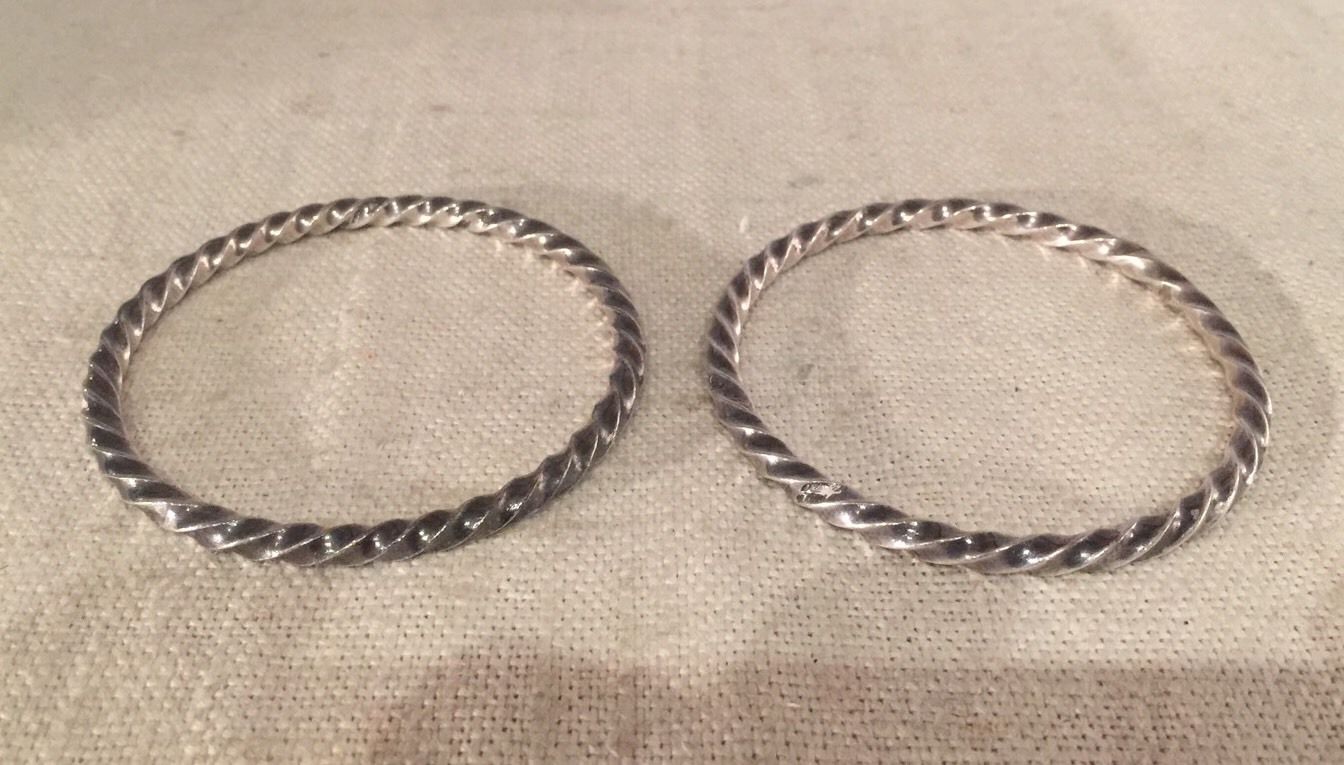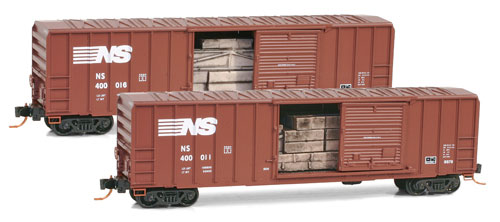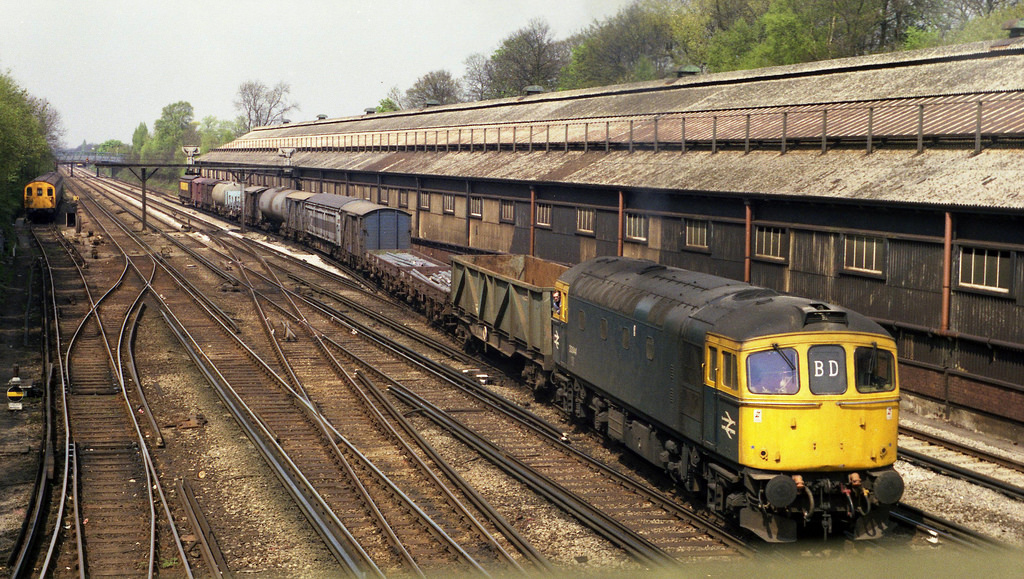Specific Item Information: Limited edition set..
This add-on set contains:
- 1 Atlas GP38 locomotive
- 1 Con-Cor Bay Window caboose
- 4 x Atlas 50' flat cars
- 3 x Atlas 24' trailers
- 2 x Atlas 40' trailers
- 1 x Atlas 45' trailers
This add-on set contains:
- 1 Atlas GP38 locomotive
- 1 Con-Cor Bay Window caboose
- 4 x Atlas 50' flat cars
- 3 x Atlas 24' trailers
- 2 x Atlas 40' trailers
- 1 x Atlas 45' trailers
Prototype History: A mixed freight train is a train that hauls a variety of different freight cars or wagons. A mixed freight depends on the locale and industries. The train will be carrying cars to be brought to a yard where a local will bring them to the various industries. The location determines the industries, and the industries determine the cars.
Which cars are in which trains is determined by the waybills they are assigned - which is close to a totally random process. For example, through freights simply run from up staging to down staging and back, stopping long enough to trade out 30 percent of their cars and change from steam to motor (catenary) or vice-versa. Thus freights will have a variety of cars, changing each time they pass through a switching yard.
Which cars are in which trains is determined by the waybills they are assigned - which is close to a totally random process. For example, through freights simply run from up staging to down staging and back, stopping long enough to trade out 30 percent of their cars and change from steam to motor (catenary) or vice-versa. Thus freights will have a variety of cars, changing each time they pass through a switching yard.
Road Name History: 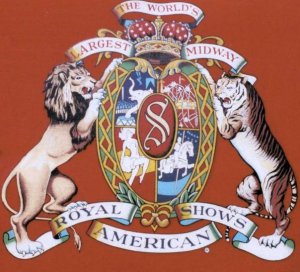 Royal American Shows was founded by Carl J. Sedlmayr, who was born in Nebraska in 1886, Royal American Shows was one of the largest American carnivals throughout most of the twentieth century. Although Royal American's first contract with the Calgary Stampede was in 1934, the company was unable to travel to Canada from 1942 to 1945, during the Second World War, as it relied on a large train (up to 90 rail cars) for transportation. During the war, use of the rail system was restricted by the United States government to the movement of military personnel and equipment.
Royal American Shows was founded by Carl J. Sedlmayr, who was born in Nebraska in 1886, Royal American Shows was one of the largest American carnivals throughout most of the twentieth century. Although Royal American's first contract with the Calgary Stampede was in 1934, the company was unable to travel to Canada from 1942 to 1945, during the Second World War, as it relied on a large train (up to 90 rail cars) for transportation. During the war, use of the rail system was restricted by the United States government to the movement of military personnel and equipment.
In 1967 Royal American Shows was at its pinnacle in terms of size, over 800 people along with livestock and equipment and over 80 railroad cars in 1971. Royal American Shows carried the greatest number of flatcars ever carried by any traveling amusement organization in the world. The show traveled with a full complement of carpenters, canvas men, electricians, painters, full working machine shops with mills, lathes, drills, welders, mechanics, cookhouse, portable showers, and mail department.
Royal American Shows faced the changing economy in the 1970's that would have a huge impact on continuing to stay in business. Towards the end of the 1970's there was a tremendous loss of revenue for Royal American Shows caused by greater distances traveled with ever increasing costs with railroad transportation just to move the show from place to place. In addition, Royal America Shows lost its Canadian route in 1977 during a tax issue causing Royal American to lose all of that revenue on top of mounting expenses.
The carnival equipment seized from the 1975 tax issue at Edmonton and Regina was held in storage until the mid-1990's, at which time the assets were sold at auction and the proceeds were used to pay the outstanding fines. Royal American Shows continued to operate in the United States for the next twenty years, diminishing in size over time; Royal American Show's last spot was in Lubbock, Texas, in October 1997.

In 1967 Royal American Shows was at its pinnacle in terms of size, over 800 people along with livestock and equipment and over 80 railroad cars in 1971. Royal American Shows carried the greatest number of flatcars ever carried by any traveling amusement organization in the world. The show traveled with a full complement of carpenters, canvas men, electricians, painters, full working machine shops with mills, lathes, drills, welders, mechanics, cookhouse, portable showers, and mail department.
Royal American Shows faced the changing economy in the 1970's that would have a huge impact on continuing to stay in business. Towards the end of the 1970's there was a tremendous loss of revenue for Royal American Shows caused by greater distances traveled with ever increasing costs with railroad transportation just to move the show from place to place. In addition, Royal America Shows lost its Canadian route in 1977 during a tax issue causing Royal American to lose all of that revenue on top of mounting expenses.
The carnival equipment seized from the 1975 tax issue at Edmonton and Regina was held in storage until the mid-1990's, at which time the assets were sold at auction and the proceeds were used to pay the outstanding fines. Royal American Shows continued to operate in the United States for the next twenty years, diminishing in size over time; Royal American Show's last spot was in Lubbock, Texas, in October 1997.
Brand/Importer Information: The Freight Yard was a hobby shop that did custom decoration and special runs of other manufacturers' N Scale products. It sold its custom products under several brands or collections: Premiere Editions, by The Freight Yard and Dreams Design.
It was located in Anaheim, California and then moved to 2006 in Phoenix, Arizona.
Established in the late 1980s, it stopped business under this name by the end of the 2000s.
The Freight Yard was owned and operated by Darren J. Cohen. Darren is now operating North Valley Trains.
The Freight Yard / Premiere Editions runs are usually available in series of two to twelve different numbers (suffixed A to M, with I not used).
The first two digits of the stock number correspond to the release year (9x being 199x, and 2x being 200x).
It was located in Anaheim, California and then moved to 2006 in Phoenix, Arizona.
Established in the late 1980s, it stopped business under this name by the end of the 2000s.
The Freight Yard was owned and operated by Darren J. Cohen. Darren is now operating North Valley Trains.
The Freight Yard / Premiere Editions runs are usually available in series of two to twelve different numbers (suffixed A to M, with I not used).
The first two digits of the stock number correspond to the release year (9x being 199x, and 2x being 200x).
Item created by: Alain LM on 2022-04-23 14:43:41
Last edited by: Alain LM on 2022-04-23 15:00:31
If you see errors or missing data in this entry, please feel free to log in and edit it. Anyone with a Gmail account can log in instantly.
Last edited by: Alain LM on 2022-04-23 15:00:31
If you see errors or missing data in this entry, please feel free to log in and edit it. Anyone with a Gmail account can log in instantly.


